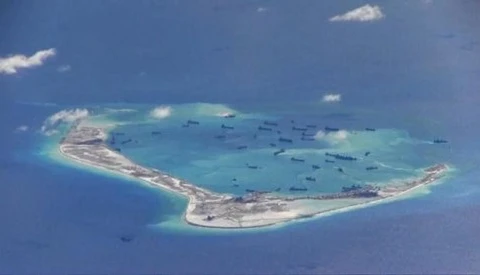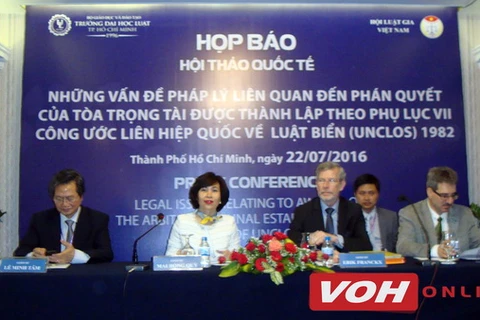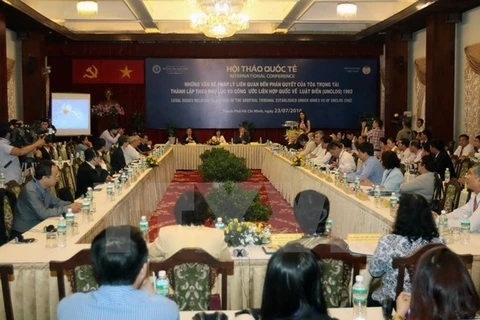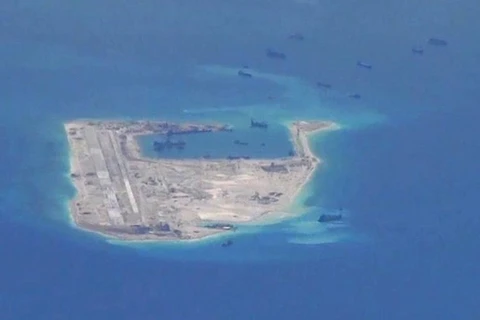Buenos Aires (VNA) – Professor Ezequiel Ramoneda, coordinator from the La Plata University’s Centre for Southeast Asia Studies, has hailed the ruling of the Permanent Court of Arbitration (PCA) in The Hague, the Netherlands, regarding the Philippines’ lawsuit against China.
In his article published on the Resumen Latinoamericano newspaper, he said the ruling provides an important legal precedent for the East Sea sovereignty disputes involving Vietnam, Malaysia, Brunei, Indonesia, besides China and the Philippines.
He underscored the economic and strategic significance of the East Sea, describing it as an important navigation route that is rich in fishing and fuel resources.
Ramoneda criticised China’s disregard for the Declaration on the Conduct of Parties in the East Sea signed by the country and the Association of Southeast Asian Nations in 1992, evidenced by its occupation of the Scarborough Shoal in 2012 as well as the expanded construction on artificial islands.
The scholar also protested China’s groundless claim for the so-called “nine-dash line” in the East Sea irrespective of parties concerned. He said that was an aggressive action instead of the peaceful settlement of differences.
China has also prevented other countries’ fishermen from go fishing in the area, which has threatened maritime freedom and safety and the ecological environment.
Vietnam and the Philippines are the hardest hit by China’s behaviours, he stressed, admitting that though the ruling is yet to deal with sovereignty issue in the East Sea to the root, it has rejected China’s claim for the “nine-dash line”, contributing to ensuring regional security.
He warned that China’s defiance of the ruling would exacerbate tension and challenge international law, particularly the enforcement of the 1982 United Nations Convention on the Law of the Sea.-VNA

























